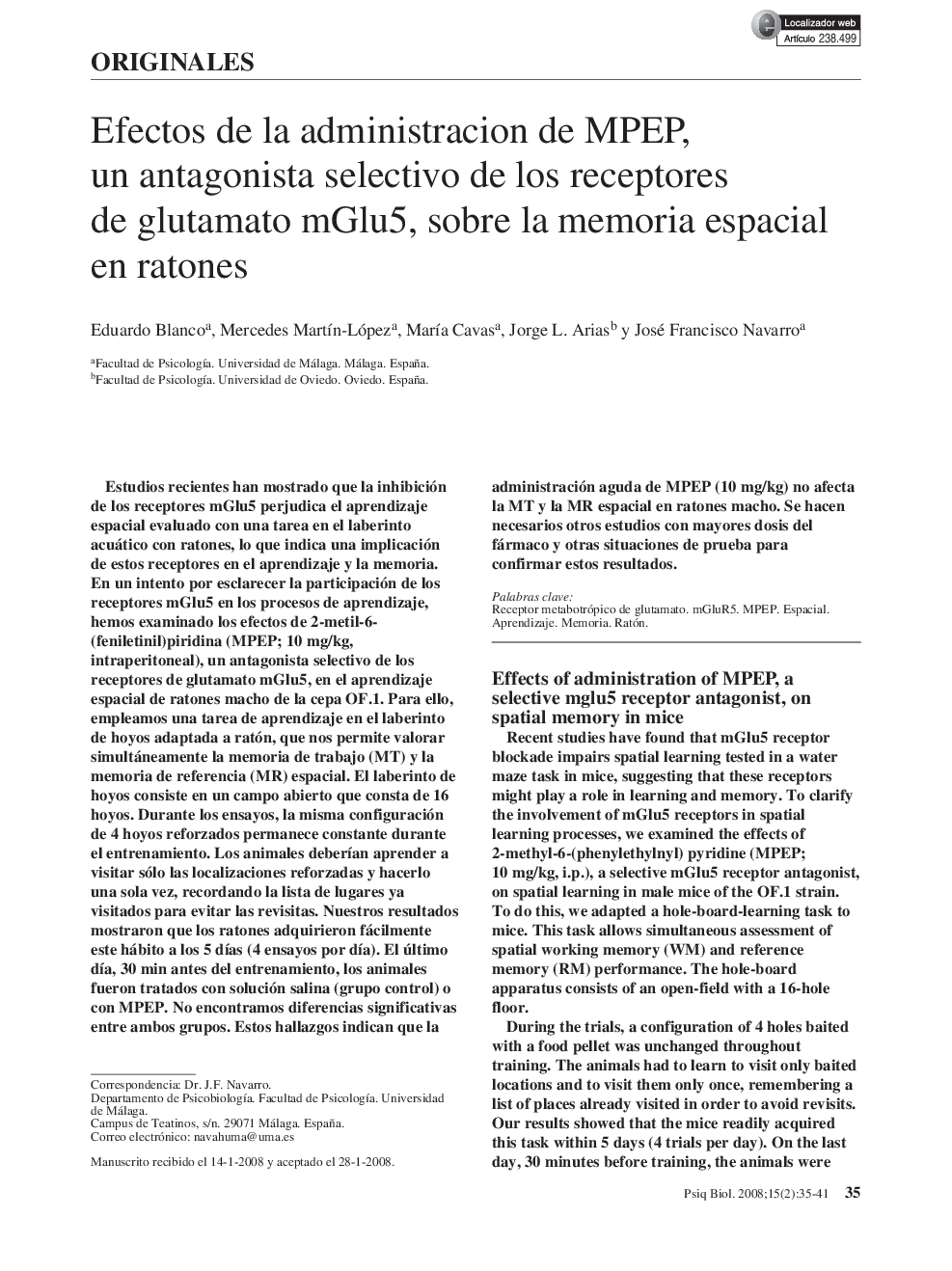| Article ID | Journal | Published Year | Pages | File Type |
|---|---|---|---|---|
| 4188766 | Psiquiatría Biológica | 2008 | 7 Pages |
Abstract
Recent studies have found that mGlu5 receptor blockade impairs spatial learning tested in a water maze task in mice, suggesting that these receptors might play a role in learning and memory. To clarify the involvement of mGlu5 receptors in spatial learning processes, we examined the effects of 2-methyl-6-(phenylethylnyl) pyridine (MPEP; 10Â mg/kg, i.p.), a selective mGlu5 receptor antagonist, on spatial learning in male mice of the OF.1 strain. To do this, we adapted a hole-board-learning task to mice. This task allows simultaneous assessment of spatial working memory (WM) and reference memory (RM) performance. The hole-board apparatus consists of an open-field with a 16-hole floor. During the trials, a configuration of 4 holes baited with a food pellet was unchanged throughout training. The animals had to learn to visit only baited locations and to visit them only once, remembering a list of places already visited in order to avoid revisits. Our results showed that the mice readily acquired this task within 5 days (4 trials per day). On the last day, 30Â minutes before training, the animals were administered either saline solution (control group) or MPEP. No significant differences were found between the two groups. These findings indicate that acute administration of MPEP (10Â mg/kg) did not affect spatial WM or RM in male mice. Further studies with higher doses of the drug and other test situations are required to confirm these results.
Related Topics
Health Sciences
Medicine and Dentistry
Psychiatry and Mental Health
Authors
Eduardo Blanco, Mercedes MartÃn-López, MarÃa Cavas, Jorge L. Arias, José Francisco Navarro,
